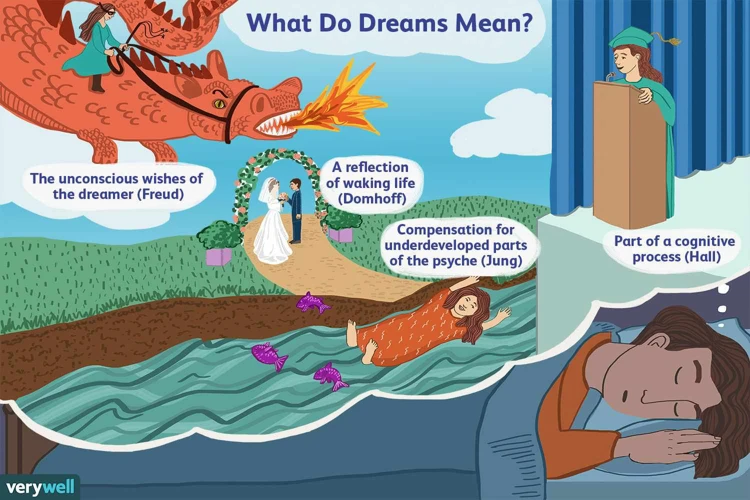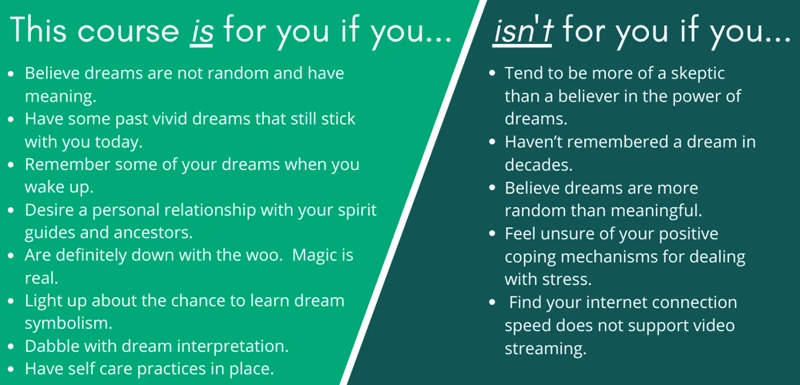Have you ever wondered why we remember our dreams? It’s a perplexing phenomenon that has puzzled scientists and philosophers alike for centuries. Dream recall is a mysterious process that takes place during our sleep, allowing us to vividly remember the dream images and experiences upon waking up. In this article, we will delve into the science behind dreams, explore the factors that affect dream recall, understand why some dreams stick in our memory more than others, and discover techniques to enhance dream recall. So, let’s dive into the fascinating world of dreams and unravel the enigma of why we remember them.
The Science of Dreams

Understanding the science behind dreams is a complex endeavor that involves unraveling the intricate workings of the human brain. While dreams have been studied for centuries, there is still much to learn about their origin and purpose. However, researchers have made significant discoveries that shed light on how dreams form. One theory suggests that dreams are a byproduct of the brain’s processing and consolidating memories from the day. During sleep, the brain sifts through information and experiences, integrating them into our long-term memory. This consolidation process may give rise to the vivid and often bizarre imagery that we encounter in our dreams. Another perspective proposes that dreaming is the brain’s way of simulating different scenarios and preparing us for real-life situations. Dreams could serve as a rehearsal for challenging events, allowing us to think and respond to various scenarios subconsciously. Regardless of the exact mechanisms, the science of dreams continues to fascinate and perplex scientists as they strive to uncover the mysteries of the sleeping mind.
1. How Dreams Form
The process of how dreams form is a subject of ongoing scientific research, encompassing various theories and perspectives. One prominent theory suggests that dreams are a result of the brain’s attempt to make sense of random neural activity during sleep. According to this hypothesis, known as the activation-synthesis theory, the brain generates spontaneous electrical impulses, creating a flood of neural activity. These raw neural signals are then processed and interpreted by the brain’s higher cortical regions, giving rise to the rich imagery and narratives that we experience in our dreams. This theory implies that dreams are essentially the brain’s attempt to create a coherent story or meaning out of random neural firings. While this theory provides valuable insights into how dreams may form, it does not explain the specific content or symbolism that often appears in dreams. To explore the fascinating world of dream content and its meaning, check out our insightful guide on the meaning of dreaming about dancing.
2. Role of the Brain in Dream Recall
The brain plays a crucial role in dream recall. While we may experience numerous dreams throughout the night, remembering them upon waking can be a challenge. The process of dream recall involves several neural mechanisms that activate different parts of the brain. One key area involved in dream recall is the hippocampus, which is responsible for memory formation and retrieval. Studies have shown that damage or dysfunction in the hippocampus can result in difficulties in remembering dreams. Additionally, the prefrontal cortex, known for its role in executive functions and self-awareness, also plays a part in dream recall. This region helps with the encoding and retrieval of dreams, as well as the ability to reflect upon and analyze dream content. Understanding the intricate interplay between these brain regions may provide insights into why some individuals have better dream recall than others.
3. The Stages of Sleep and Dream Recall
During sleep, our brain goes through different stages that contribute to dream recall. The sleep cycle consists of four stages: Stage 1, Stage 2, Stage 3, and REM (Rapid Eye Movement) sleep. Stage 1 is the transition phase between being awake and asleep, and dreams are not typically recalled during this stage. It is during Stage 2 that dream fragments may start to appear in our memory upon waking. In Stage 3, also known as deep sleep or slow-wave sleep, dreams are less likely to be remembered. However, it is during REM sleep, the final stage of the sleep cycle, that dreams are most vivid and easily recalled. REM sleep is characterized by rapid eye movement, increased brain activity, and muscle paralysis, creating an optimal environment for dream formation and recall. So, if you want to increase your chances of remembering your dreams, paying attention to the REM sleep stage and waking up during or shortly after REM sleep can be beneficial.
4. Factors Affecting Dream Recall
When it comes to dream recall, several factors come into play that can either enhance or hinder our ability to remember our dreams. Sleep quality and duration play a significant role in dream recall. The more restful and uninterrupted our sleep is, the better our chances of recalling our dreams upon awakening. Emotional intensity is another critical factor. Dreams that evoke strong emotions, such as fear, joy, or sadness, are more likely to be remembered than those with neutral or mild emotions. Additionally, external stimuli and environmental factors can influence dream recall. For example, if we are abruptly awoken during the REM stage of sleep, which is when dreams are most vivid, we are more likely to remember the dream. Lastly, keeping a dream journal can significantly enhance dream recall. Writing down our dreams immediately upon waking can help us remember details that might otherwise fade quickly from our memory. By understanding these factors and implementing techniques to improve dream recall, we can unlock the secrets of our nighttime adventures.
Why Do Some Dreams Stick?

The emotional intensity of a dream plays a significant role in its stickiness in our memory. Dreams that evoke strong emotions, such as fear, excitement, or joy, are more likely to be remembered upon waking up. The heightened emotional response triggers the release of neurochemicals in the brain, which helps strengthen the encoding and consolidation of the dream into our memory.
Dreams that hold personal significance or relevance to our waking life are more likely to be retained in our memory. Dreams that touch upon unresolved issues, important events, or intense desires tend to leave a lasting impression. When a dream resonates with our beliefs, values, or aspirations, we are more inclined to remember it even after we wake up.
Lucid dreaming, a state in which we become aware that we are dreaming while still in the dream, can have a profound impact on dream recall. When we achieve lucidity, our level of consciousness increases, allowing us to actively participate in and manipulate the dream experience. This heightened awareness often leads to more vivid and memorable dreams, as well as a greater ability to remember them upon awakening.
1. Emotional Intensity and Dream Recall
1. Emotional Intensity and Dream Recall: Have you ever noticed that some dreams stay with you long after you’ve woken up? Well, the emotional intensity of a dream plays a significant role in its recall. Studies have shown that dreams with heightened emotions, whether positive or negative, are more likely to be remembered. When we experience intense emotions in a dream, our brain processes the information differently, making it more accessible for recall upon waking. For example, a dream filled with fear, excitement, or joy may leave a lasting impression in our memory. On the other hand, dreams with neutral or lower emotional content tend to fade away quickly, as they do not trigger the same level of arousal or significance. So, the next time you have a particularly emotionally charged dream, don’t be surprised if it lingers in your mind throughout the day.
2. Dream Significance and Recall
In the realm of dreams, not all dreams are created equal when it comes to recall. Dream significance plays a role in our ability to remember them upon waking. Dreams that hold personal meaning or contain emotionally charged content are more likely to be recalled. When a dream evokes strong emotions such as fear, joy, or sadness, it creates a lasting impression on our memory, making it more likely to be remembered. Additionally, dreams that contain vivid imagery, unusual events, or bizarre scenarios are also more likely to be recalled due to their distinctiveness. The significance of a dream can vary from person to person, as we all have unique experiences, beliefs, and emotions that shape our dream recall. So, the next time you have a dream that leaves you pondering its meaning or wakes you up in a state of curiosity, consider its significance as a factor in why it stuck in your memory.
3. Impact of Lucid Dreaming on Recall
When it comes to dream recall, lucid dreaming can have a significant impact. Lucid dreaming is a state of awareness where the dreamer is aware that they are dreaming while still in the dream itself. This heightened level of consciousness can lead to improved dream recall upon waking up. During lucid dreams, individuals may engage in techniques such as dream spinning, reality testing, or verbal affirmations to maintain their lucidity and enhance the overall dream experience. By actively participating and consciously exploring the dream environment, individuals are more likely to remember the details of their dreams. Lucid dreaming allows the dreamer to bridge the gap between the dream world and waking consciousness, which can have a positive impact on their ability to recall and remember their dreams vividly.
Techniques for Enhancing Dream Recall

Enhancing dream recall can be a valuable tool for those interested in exploring their dream world. There are several techniques that individuals can utilize to improve their ability to remember dreams. Dream journaling is a commonly recommended practice where one keeps a notebook or journal by their bed to record their dreams immediately upon waking. This helps in capturing the details of the dream before they fade away. Reality checks and dream awareness involve regularly questioning one’s reality throughout the day to establish a habit of questioning whether one is dreaming or awake. This habit can carry over into dreams, increasing the chances of becoming lucid and enhancing dream recall. Setting intentions for dream recall before sleep involves consciously telling oneself that you will remember your dreams upon waking up. This primes the mind for dream recall. Lastly, enhancing sleep quality by incorporating healthy sleep habits such as a consistent sleep schedule, creating a relaxing sleep environment, and practicing good sleep hygiene can also improve dream recall. By implementing these techniques, individuals can unlock the potential for enhanced dream recall and a deeper understanding of their dream experiences.
1. Dream Journaling
Dream journaling is a powerful technique for enhancing dream recall and gaining insights into the content and patterns of our dreams. By keeping a journal by your bedside and recording your dreams immediately upon waking, you create a habit that signals to your brain the importance of remembering your dreams. The act of writing down your dreams helps to solidify them in your memory and promotes better recall in the future. It is essential to jot down as many details as possible, including people, places, emotions, and any symbols or recurring themes that stand out. By reviewing your dream journal regularly, you may start to notice patterns and connections between your dreams and your waking life, allowing for a deeper understanding of your subconscious mind. Additionally, maintaining a dream journal can be a
Subscribe to Our Newsletter
Sign up to receive the latest news and updates.
2. Reality Checks and Dream Awareness
Reality checks and dream awareness techniques play a crucial role in enhancing dream recall. Reality checks involve performing regular checks while awake to determine whether or not one is dreaming. These checks can include looking at the time, checking text or numbers for inconsistencies, or trying to push a finger through the palm of the hand. By conditioning ourselves to perform these reality checks throughout the day, we increase the likelihood of doing them while dreaming. This practice can help promote a state of lucidity, where we become aware that we are dreaming. Lucid dreaming, the state of being aware within a dream, has been associated with improved dream recall. When we are conscious in a dream, we are more likely to remember it upon waking. So, by combining reality checks with the intention of becoming aware in our dreams, we can cultivate a heightened sense of dream recall and tap into the fascinating world of our unconscious mind.
3. Setting Intentions for Dream Recall
Setting intentions for dream recall is a powerful technique that can enhance our ability to remember and explore our dreams. By consciously setting the intention to remember our dreams before we go to sleep, we signal to our subconscious mind that dream recall is important to us. This act of intentionality can help shift our focus towards our dreams and increase our dream awareness. One method to set intentions is through affirmations, where we repeat positive statements such as “I will remember my dreams tonight.” Another technique is visualization, where we imagine ourselves waking up from a dream and immediately recording the details. By employing these techniques consistently, we can train our minds to prioritize dream recall and improve our ability to remember and analyze our dreams. As we cultivate this practice, we may begin to unlock the hidden meanings and insights that our dreams hold, allowing us to gain a deeper understanding of ourselves and our subconscious mind.
4. Enhancing Sleep Quality for Better Recall
Getting a restful night’s sleep is essential for enhancing dream recall. Here are some tips for improving sleep quality:
- Create a Sleep-Friendly Environment: Make sure your bedroom is comfortable, quiet, and dark. Use a comfortable mattress, pillows, and blankets for optimal sleep.
- Stick to a Consistent Sleep Schedule: Try to go to bed and wake up at the same time every day, even on weekends. This helps regulate your body’s internal clock and promotes better sleep.
- Avoid Stimulants: Limit your intake of caffeine, nicotine, and alcohol, especially in the evening. These substances can interfere with sleep quality and disrupt your ability to remember dreams.
- Practice Relaxation Techniques: Engage in relaxation exercises, such as deep breathing or meditation, before bed to promote relaxation and reduce stress.
- Avoid Heavy Meals at Night: Eating a large meal close to bedtime can cause discomfort and disrupt sleep. Opt for a light snack if you’re hungry before bed.
By prioritizing sleep quality, you can create an optimal environment for vivid and memorable dream experiences. Remember, better sleep leads to better dream recall!
The Psychological Aspect of Dream Recall
Delving into the psychological aspect of dream recall allows us to explore the interpretations and theories put forth by renowned psychologists. Sigmund Freud, the father of psychoanalysis, believed that dreams were a window into the unconscious mind and that their hidden symbols and meanings could provide insight into our deep-seated desires and fears. According to Freud, dream recall could provide a pathway to understanding the subconscious conflicts within ourselves. An alternative perspective comes from Carl Jung, who saw dreams as a means of individuation and self-discovery. Jung believed that dream recall could offer guidance and insight into our personal growth and development. He emphasized the importance of exploring recurring dream themes and symbols to uncover the messages and symbols hidden within them. Both Freud and Jung contributed significantly to the psychological understanding of dream recall, leaving us with intriguing insights into the inner workings of the human psyche.
1. Freud’s Interpretation of Dream Recall
Sigmund Freud, the renowned psychoanalyst, delved into the realm of dream interpretation and explored the significance of dream recall. Freud believed that dreams are the “royal road to the unconscious,” providing valuable insights into our hidden desires, fears, and unresolved conflicts. According to Freud, dreams serve as a way for the subconscious mind to express repressed thoughts and wishes that are too threatening to be acknowledged in waking life.
Freud introduced the concept of dream symbolism, suggesting that the manifest content of dreams, or the literal images and events we recall, are disguises for underlying latent content, which represents our true unconscious desires. For example, Freud might interpret a dream of being chased by a bearded dragon as symbolizing feelings of anxiety or sexual repression. He believed that by analyzing and interpreting the symbolism and underlying meaning of dreams, individuals could gain insight into their subconscious desires, unresolved conflicts, and even clues to their past experiences and emotions.
2. Jungian Perspective on Dream Recall
In the field of psychology, Carl Jung’s perspective offers valuable insights into the phenomenon of dream recall. According to Jung, dreams are a gateway to our unconscious mind and contain symbolic messages that can provide deep meaning and insights into our psyche. Jung believed that dream recall is influenced by our level of self-awareness and willingness to explore the symbolic language of dreams. He emphasized the importance of exploring the personal and collective unconscious, which are vast realms of the mind that hold archetypes, symbols, and suppressed emotions. Jungian analysis of dream recall involves interpreting the symbolic elements and exploring their connections to our waking life and inner conflicts. By delving into the rich symbolism of dreams, individuals can gain valuable self-knowledge and tap into the hidden wisdom of the unconscious.
Conclusion
In conclusion, the mystery behind why we remember dreams is a topic that continues to captivate and intrigue us. The science of dreams has provided some insights into the formation of dreams and the role of the brain in dream recall. Factors such as emotional intensity, dream significance, and even lucid dreaming can influence our ability to remember dreams. Additionally, techniques like dream journaling, reality checks, and setting intentions can enhance dream recall. While Freud and Jung offered different interpretations of dream recall from a psychological perspective, the true nature and purpose of dreams remain elusive. As we unravel the complexities of the human mind, we may come closer to understanding the enigma of why we remember our dreams. So, next time you find yourself pondering a dream, whether it’s a dream of a bearded dragon or a dream of being drugged, remember that dreams hold a wealth of untapped knowledge and fascination within them.
Frequently Asked Questions
1. Why do we dream?
The exact purpose of dreaming is still a subject of debate among scientists. However, some theories suggest that dreams serve as a way for the brain to process emotions, consolidate memories, and simulate different scenarios.
2. Can dreams be interpreted?
Dream interpretation is a subjective field, with various theories and approaches. While some believe that dreams contain hidden meanings and symbols that can be deciphered, others view dreams as a reflection of our subconscious thoughts and experiences.
3. Do dreams have any real-life significance?
Dreams can hold personal significance for individuals, as they may reflect their emotions, desires, fears, and unresolved issues. However, it’s important to interpret dreams within the context of one’s own life and experiences.
4. Why do some dreams feel more vivid than others?
The intensity of dreams can vary based on several factors, including emotional arousal, level of brain activity during sleep, and the impact of external stimuli on the sleeping environment.
5. Can dreams predict the future?
While some people claim to have experienced dreams that foreshadow future events, there is no scientific evidence to support the idea that dreams have predictive abilities.
6. What causes nightmares?
Nightmares can be triggered by a variety of factors, including stress, anxiety, trauma, medication, and sleep disorders. They often involve intense negative emotions and can disrupt sleep.
7. Why do we forget most of our dreams?
The human brain is designed to prioritize and store important information while discarding irrelevant or unimportant details. This natural filtering process may contribute to the forgetting of dreams soon after waking up.
8. Can everyone have lucid dreams?
While many people can learn to have lucid dreams with practice and various techniques, the frequency and ease of achieving lucidity can vary from person to person.
9. Do animals dream?
Studies suggest that animals, particularly mammals, also experience dream-like states during sleep. Similar to humans, their dreams may be linked to memory processing and instinctual behaviors.
10. Can dreaming help with problem-solving?
Some research suggests that dreams may play a role in creative problem-solving by facilitating connections between seemingly unrelated concepts. However, more studies are needed to fully understand the extent of this relationship.










